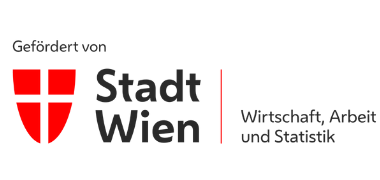
Recognition of Prior Learning (RPL)
Recognition of Prior Learning (RPL)
Welcome to the Recognition Office of the University of Applied Sciences BFI Vienna!
We promote permeability both in access to studies and when switching between degree programmes by recognising existing competences. We value the fact that competences can be acquired not only through formal, but also through non-formal or informal learning, regardless of where and how this has taken place.
Three areas of application
Non-formally and informally acquired knowledge and competences can be recognised in the following areas:
- Access to the Bachelor degree programme
In addition to the general university entrance qualification, a relevant professional qualification is also a prerequisite for admission to the Bachelor's degree programme (Section 4 (4) FHG). Each Bachelor's degree programme has an entry competence profile, which is used to compare the competences of the applicants.
- Access to the Master degree programme
The admission requirement for a UAS Master's degree programme is in any case the completion of a relevant (UAS) Bachelor's degree programme (Section 4 (4) FHG). Each Master's degree programme has also defined the relevant admission requirements and the way in which these can be proven (e.g. through a certain number of ECTS from the Bachelor's degree programme in certain areas; proof beyond this can be provided through recognition of competence). In order to fulfil the ECTS admission requirements, the UAS BFI Vienna also offers bridging courses for certain areas.
- Recognition of courses
All degree and higher education programmes have described their curricula in terms of learning outcomes. Recognition of prior learning is based on the learning outcomes of the respective curriculum, which are compared with the students formal, non-formal or informal competences. Applications for recognition of courses are submitted via the respective degree programme.
At the University of Applied Sciences BFI Vienna, competences acquired outside of higher education are recognised as part of a validation process. At the same time, we use this procedure to ensure that students‘ and graduates’ competences meet the requirements of higher education.
There is a simplified procedure for non-formally acquired competences (e.g. certain certificates and further training, certain other competences depending on the degree programme); for informally acquired competences (e.g. from professional activities), a portfolio must be created that compares the respective admission requirements or learning outcomes with your competences.
The validation process - the steps to RPL
- Find out about the admission requirements for your chosen degree programme or the learning outcomes of the course for which you would like to apply for RPL.
- Identify your existing knowledge, skills and competences.
- If, based on your identified competences, you believe you fully meet the entry requirements / learning outcomes, contact the Recognition Office.
- You will now have access to our Moodle course, where you will learn how to create a skills portfolio and where you can obtain the relevant form.
- Create your portfolio with the evidence of your acquired competences.
- Your application will then be assessed by our experts. If necessary, your competences can be verified during a technical discussion.
- A positive settlement takes place
- admission to the degree programme in the form of admission to the admission procedure or
- "recognised" as part of the course recognition by the grade entry
If you have certificates or evidence that are defined by a degree programme as evidence of competences, there is a simplified recognition procedure without creating a portfolio. In certain cases, this can also be English as a working language, for example. Please contact your degree programme for this.



